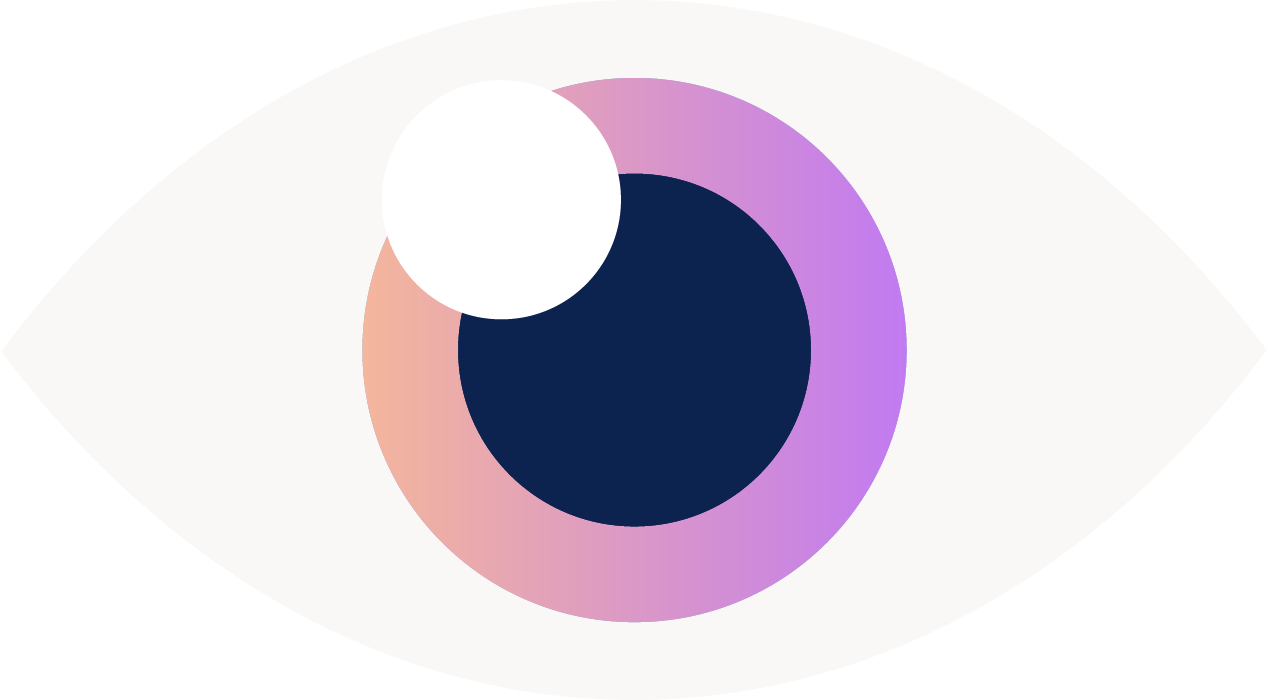Pregnancy & Your Eyes: What Hormones Are Really Doing to Your Vision
Listen On
Pregnancy changes everything—your body, your energy, your emotions... and yes, even your eyes.
I recently sat down with Dr. Amanda Horton, a board-certified OB-GYN and maternal-fetal medicine specialist, to talk about how hormones during pregnancy can affect your eyesight. As someone who treats pregnant patients in my ophthalmology clinic, I’ve seen how scary these changes can feel—especially when no one warned you they were coming.
So let’s break it down. Here’s what we covered, and what I wish every expectant mother (and her eye doctor!) knew.
✧ Your Eyes Feel Off? Blame the Hormones.
Blurry vision. Dry eyes. Contact lenses suddenly feeling like they don’t fit. These are common pregnancy complaints—and there’s a reason.
Estrogen and progesterone levels surge during pregnancy, especially in the third trimester. Your tear production decreases. Fluid retention changes the shape of the cornea. That means your glasses prescription may shift temporarily, and contacts might feel uncomfortable.
The bottom line? Don’t get LASIK or a new glasses prescription while pregnant—or even in the first few months postpartum. Your vision will likely return to normal once your hormones stabilize (usually around 6–12 weeks if not breastfeeding, longer if you are).
✧ When Blurry Vision Is Not Normal
Sometimes, vision changes are more than hormonal. They can be the first sign of something more serious—like preeclampsia, a potentially life-threatening complication of pregnancy.
Dr. Horton and I both shared personal stories of experiencing this ourselves—and how easy it was to miss. Headaches, flashing lights, or sudden visual disturbances should never be brushed off. In fact, vision changes with a headache are a red flag, and it’s critical to seek care right away.
This is why I always say: when in doubt, speak up. Your concerns deserve to be taken seriously.
✧ Gestational Diabetes Can Show Up in the Eyes
Vision changes may also be a sign of gestational diabetes, especially if blood sugar levels spike. Patients often come in saying their vision feels “off” or blurry. It turns out, glucose pulls water into the lens of the eye, altering its shape and temporarily changing your prescription.
Sometimes blurry vision is the first clue something’s going on metabolically. That’s why it’s important to stay on top of your eye exams during pregnancy, especially if you have risk factors or a diagnosis of gestational diabetes.
(And yes, dilated eye exams are safe during pregnancy—no need to avoid them.)
✧ Autoimmune Conditions & Pregnancy: A Delicate Dance
For patients with underlying autoimmune diseases like lupus, MS, or thyroid disorders, pregnancy can be a trigger. Some symptoms flare. Some conditions worsen. And some—like MS—can present with new eye symptoms, including vision loss.
Dr. Horton stressed how valuable it is to see a maternal-fetal medicine specialist before you get pregnant if you live with a chronic illness. There’s so much we can do—optimize medications, coordinate care with other specialists (including ophthalmologists), and plan for a safer pregnancy.
Your health before pregnancy directly impacts your experience during and after. It’s worth investing in.
✧ Pregnancy Is Temporary. But Its Impact Isn’t.
I say this as both a doctor and a mother of three: the blurry vision, the dryness, the frustration with putting in contacts when you’re exhausted from middle-of-the-night feedings—it’s real. It’s hard.
But it’s also temporary.
Still, the complications that arise during pregnancy—like high blood pressure or gestational diabetes—can echo into the future. That’s why Dr. Horton and I both stress the importance of listening to your body, advocating for yourself, and staying plugged into your care team.
Pregnancy may feel like a short window, but it can shape your long-term health.
✧ Advocate. Prepare. Care for Yourself.
As Dr. Horton put it so well: “Your health is an investment. Make that investment in yourself.”
If you’re pregnant—or thinking about becoming pregnant—get your eyes checked. Talk to your OB. If something feels off, don’t dismiss it. Speak up. Ask questions.
We don’t expect perfection from our patients. But we do want you informed, empowered, and cared for—before, during, and after pregnancy.
Because your health matters. Your story matters. And you deserve to be seen.
Listen to the full conversation with Dr. Amanda Horton on the In Focus Podcast, available on Spotify, Apple Podcasts, or the Learn at Pinnacle app.
Follow Dr. Amanda Horton on Instagram: @amandahortonmd
Want to Learn More?
This is just the beginning. In upcoming episodes, we’ll explore:
-How screen time and digital habits are shaping our kids’ development
–The connection between vision and overall health
–What you need to know about common eye procedures like LASIK and cataract surgery
–Practical ways to advocate for your child’s visual needs
You can subscribe to my podcast, In Focus, anywhere you listen—or follow along on Instagram for updates and tips.
Watch this episode on Youtube right now!
Thanks for reading—and for doing what you can to protect your child’s vision, one step at a time.
– Dr. Rupa Wong
Pediatric Ophthalmologist | Surgeon | Mom of 3
This episode is brought to you by The Pinnacle Podcast Network! Learn more about Pinnacle at learnatpinnacle.com



